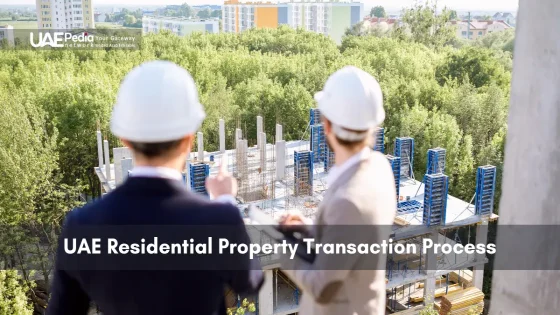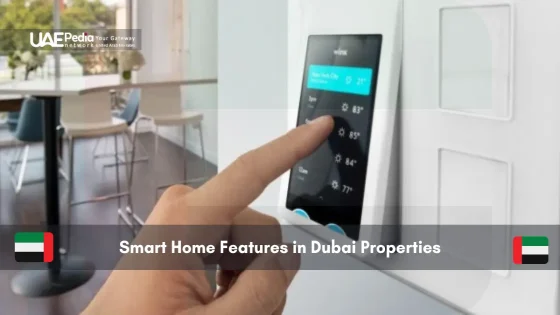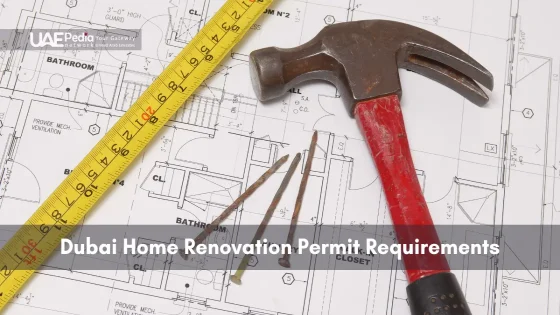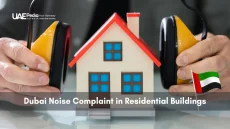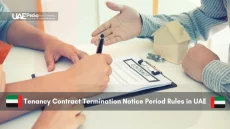Did you know transferring ownership here can wrap up in just seven days? The Emirates’ real estate scene moves faster than a desert falcon—but only if you know the rules. Between gleaming skyscrapers and historic neighborhoods, buying or selling a home blends tradition with cutting-edge efficiency.
We’ve walked Dubai’s sandy construction sites and Abu Dhabi’s marble-floored registries. What makes this market unique? A legal tapestry weaving global standards with local safeguards. Miss one thread, and delays—or worse—can follow.
Smart buyers don’t just tour villas. They master timelines, fees, and that critical conveyancing phase where ownership shifts hands. Whether it’s your first apartment or fifth investment, securing your transaction hinges on understanding freehold vs. leasehold nuances. (Hint: One lets you pass the keys to grandkids.)
The UAE Residential Property Transaction Process enables title transfer in as little as seven days through a defined conveyancing and registration workflow. Key steps include due diligence on ownership chains and service charge histories, securing a developer NOC, and drafting a binding sale and purchase agreement with clear payment milestones and penalty clauses. Escrow arrangements protect funds until specified conditions are fulfilled.
Registration is completed via the Dubai Land Department’s digital platform, where trustees verify notarized documents, fees are paid, and a digital title deed is issued. Mandatory paperwork comprises valid ID, Ejari certificate, clean title deed, and notarized agreements. Strict adherence to freehold vs. leasehold regulations, precise contractual language, and statutory clauses minimizes legal risks and prevents procedural delays.
Skip the guesswork with our field-tested guide:
- Why local regulations favor prepared investors
- Timeline checkpoints from offer to keys
- Red flags even seasoned owners overlook
Introduction to the UAE Residential Property Landscape
Dubai’s skyline tells a story of ambition—each glittering tower whispers “build higher, dream bigger.” The city’s real estate market mirrors this energy, blending futuristic developments with investor-friendly policies. International buyers flock here not just for tax benefits, but for the thrill of owning a piece of tomorrow.
Two main ownership models shape opportunities here. Freehold areas allow full ownership rights—think Palm Jumeirah villas or Downtown Dubai penthouses. Leasehold zones offer long-term rentals (up to 99 years), perfect for those dipping toes into the market. Smart investors often mix both strategies.
| Ownership Type | Key Features | Popular Areas |
|---|---|---|
| Freehold | Full ownership transferable to heirs | Dubai Marina, Business Bay |
| Leasehold | Long-term renewable leases | Deira, Bur Dubai |
Local regulations strike a fascinating balance. The Dubai Land Department acts as both referee and coach—streamlining transactions while protecting buyer rights. Their online portals (like the Ejari system) have slashed paperwork, making deals faster than a falcon’s dive.
Market trends reveal surprising patterns. While luxury estates grab headlines, mid-range apartments show steady growth—up 14% last year. As one industry insider noted: “The smart money watches neighborhood infrastructure projects, not just penthouse views.”
Understanding this landscape unlocks doors. Whether you’re drawn to beachfront estates or commercial land parcels, knowledge transforms desert mirages into solid foundations. Ready to explore deeper?
The average rental transaction value in JVC rose by 14% over 2023, highlighting strength in mid-tier apartment demand Ref.: Bayut (2023). Bayut’s Dubai Annual Rental Market Report for 2023. Bayut [!]
Preparing for Your Property Transaction
Picture this: Your dream home slips away because of an unchecked title deed. Smart preparation separates seamless deals from costly missteps. We’ll show you how to pack your paperwork toolkit and chart your financial compass.
Document Checklist and Research
Start with three non-negotiables: valid ID, bank statements showing liquid funds, and a clean title deed. But here’s the twist—local registries now demand extra layers. A Dubai-based developer recently shared: “Buyers who verify service charge histories close deals 30% faster.”
| Essential Item | Why It Matters | Pro Tip |
|---|---|---|
| Passport copies | Mandatory for ownership registration | Notarize translations if needed |
| Ejari certificate | Confirms rental history compliance | Check for pending disputes |
| Seller’s NOC | Proves no outstanding loans | Request via DLD portal |
Due diligence isn’t just paperwork—it’s detective work. Search neighborhood development plans through the Dubai Pulse platform. Track pricing trends using land department apps. Miss these steps, and you might inherit a view of future construction cranes.
Setting Investment Goals
Are you chasing rental yields or long-term appreciation? Your answer shapes everything from property type to payment terms. One buyer learned this hard truth: Their beachfront studio’s maintenance fees devoured 40% of rental income.
Sketch your roadmap:
– Target ROI percentage
– Preferred hold period
– Risk tolerance for market swings
Align your checklist with these goals. A fixer-upper might need renovation permits, while turnkey units require service contracts. Remember: Thorough research turns desert mirages into concrete foundations.
Read More:
The Importance of Legal Documentation in Real Estate
Ever watched a sandcastle crumble without a proper base? Paperwork forms the concrete foundation of every deal. While handshakes feel warm, ink on paper keeps everyone honest when desert winds blow.
Memorandum of Understanding vs. Binding Contracts
Think of an MOU as a pinky promise between friends—it shows good faith but won’t hold up in court. Binding contracts? Those are blood oaths signed before notaries. DLA Piper’s REALWORLD guide clarifies: “An MOU outlines intentions; a contract enforces obligations.”
| Document | Legal Weight | Common Uses |
|---|---|---|
| MOU | Non-binding | Initial negotiations, partnership frameworks |
| Contract | Court-enforceable | Final sale terms, payment schedules |
One developer learned this harshly—they treated an MOU as final, only to watch the buyer walk away. Courts called it a “gentleman’s agreement,” not law.
Key Legal Terms and Conditions
Smart clauses act like airbags in collisions. Look for these lifesavers:
- Force majeure covering unforeseen delays
- Payment milestones tied to construction phases
- Penalty percentages for late handovers
Precision matters. A “30-day completion window” differs wildly from “approximately one month.” One buyer saved $18k by specifying exact snagging list deadlines. As they say: The devil vacations in vague terminology.
Drafting the Sale and Purchase Agreement
Imagine building a skyscraper without blueprints—that’s what skipping this step feels like. Once negotiations wrap, drafting the sale purchase agreement becomes your foundation. This document transforms handshake deals into enforceable promises.
Smart drafting starts with crystal clarity. One developer shared: “Ambiguity here is like leaving your car unlocked in a sandstorm—something always goes missing.” Every line should protect both parties while keeping the deal moving.
Essential Components of the Agreement
Think of these as your non-negotiable building blocks:
| Component | Purpose | Example |
|---|---|---|
| Property Details | Prevents address mix-ups | Plot number, community name |
| Sale Price | Locks in financial terms | Fixed amount + payment triggers |
| Payment Schedule | Creates accountability | Deposit dates, final transfer |
| Fee Breakdown | Avoids hidden costs | Registration charges, agent fees |
| Contingencies | Safety nets for unknowns | Inspection approvals, financing |
Watch for red flags like vague penalty clauses or open-ended deadlines. A recent case saw buyers lose $50k because their contract stated “completion when convenient.” Always specify exact dates and conditions.
Both parties should review drafts like detectives—hunting loopholes and unclear phrases. Successful negotiations often hinge on three details: payment release conditions, defect liability periods, and dispute resolution methods. Get these right, and you’ll sleep better post-signing.
Remember: A well-crafted agreement isn’t just paperwork. It’s your insurance policy against desert mirages becoming costly realities.
Engaging a Professional Conveyancer
Think of your conveyancer as the compass guiding you through legal dunes. These specialists decode paperwork mazes while shielding your wallet from hidden pitfalls. One Dubai firm’s director put it best: “We’re the air traffic controllers of deals—keeping every document and payment on radar until smooth landing.”
More Than Paper Pushers
Seasoned pros wear multiple hats. They verify ownership histories like archivists, negotiate with banks as financial diplomats, and secure deposits like armored trucks. A recent case saw a conveyancer spot missing permits that could’ve delayed a $2M sale—saving both buyer and seller months of headaches.
Your Financial Bodyguard
Ever transferred funds without a safety net? Conveyancers use escrow accounts that release payments only when milestones hit. They also translate legalese into plain English:
“That clause isn’t about late fees—it’s a ticking clock on your deposit.”
Three signs you’ve found a good one:
- DLD certification displayed proudly
- Clear fee breakdowns (no “miscellaneous” charges)
- Response times faster than a metro ride
As one satisfied client noted: “Our conveyancer caught a bank error we’d missed—turns out ‘approved’ doesn’t always mean ‘funded’.” With the right guide, even complex deals unfold like sunrise over the Gulf—predictable, breathtaking, and worth every dirham.
Title Deed Verification and Due Diligence
What if your dream home came with buried treasure—or buried liens? Smart buyers treat this step like decoding a treasure map. Title deeds aren’t just paper—they’re historical records revealing who truly holds the keys.
Verification starts with confirming the seller’s name matches registry records. One investor shared: “We found three variations of the owner’s name—turns out his passport had typos.” Cross-check with the land department’s digital portal to avoid costly mix-ups.
Due diligence digs deeper than sand dunes. It uncovers hidden mortgages, inheritance disputes, or zoning violations. A recent case revealed an undisclosed easement that blocked pool construction—saved the buyer $80k in redesign costs.
Follow this three-step inspection:
- Compare physical deed stamps with digital copies
- Verify signature authenticity through notary records
- Check for amendment endorsements on every page
Ownership chains matter more than you’d think. That beachfront villa? Its history might include six owners across three emirates. Gaps in the timeline could signal lost documents or unresolved claims.
Watch for three alarm bells:
- Mismatched plot numbers between deed and site
- Unregistered power-of-attorney signatures
- Recent ownership transfers below market value
Found issues? Don’t panic—consult title deed specialists who speak both legal and practical. As one broker advised: “Treat discrepancies like desert mirages—verify before you chase.” With thorough checks, your keys will open doors—not courtroom battles.
Omitting in-depth easement checks may speed up your deal but risks costly legal disputes and construction delays Ref.: LegalClarity Team (2025). Is an Easement Not Recorded on a Deed Enforceable? LegalClarity [!]
Navigating Dubai Land Department Procedures
Ever tried following a treasure map without X marks? That’s Dubai’s land registry without the right guide. The land department operates like a well-oiled machine—if you know which levers to pull. Let’s decode their systems together.
Registration Process and Formalities
First step: Submit your sale agreement and IDs through the DLD app or smart kiosk. A trustee then verifies signatures—this isn’t rubber-stamping. As one trustee shared: “We cross-check documents like airport security—missing one stamp? Back to the queue.”
| Step | Timeframe | Key Players |
|---|---|---|
| Initial submission | 1-2 days | Buyer/seller agents |
| Trustee review | 48 hours | DLD-approved trustees |
| Fee payment | Same day | Banking partners |
| Title issuance | 24 hours | DLD registration wing |
Obtaining the No Objection Certificate (NOC)
Developers issue this golden ticket—but it’s not automatic. One buyer learned the hard way: Their tower had outstanding service fees from two owners prior. The objection certificate process weeds out such surprises.
Three must-haves for smooth NOC approval:
- Clear maintenance fee receipts
- Developer’s architectural compliance sign-off
- Updated unit inspection report
The land department then cross-references these with their database. Registration completes only when all green lights flash. As one official put it: “We’re the bridge—not the toll booth.”
Understanding Fee Structures and Taxes
Ever bought concert tickets only to find hidden fees doubled the price? Home purchases work similarly—except the stakes are higher. Clear cost breakdowns prevent budget surprises and build trust between parties. Let’s decode where your dirhams really go.
| Fee Type | Average Cost | Who Pays? |
|---|---|---|
| Transfer Fees | 2-4% of price | Buyer/Seller split |
| Registration | $2,180+ | Buyer |
| Service Charges | $1.36-$4.08/sqft yearly | Owner |
Tax calculations follow simple math—mostly. A $545k apartment might incur $10,900 in transfer fees plus $2,180 registration. But luxury villas? Their service charges can jump 300% if they include private beach access.
Transparency acts as armor. One broker shared: “We provide line-item invoices—no ‘miscellaneous’ entries allowed.” This practice prevents disputes over who covers cleaning fees or parking permits.
Smart budgeting tips:
- Add 8% to the listed price for hidden costs
- Confirm service charge histories with building management
- Use escrow accounts for phased payments
Fee structures vary like desert landscapes. Commercial spaces often have higher registration fees but lower service charges. Leasehold properties might include renewal fees every decade. Always request written estimates—sunny assumptions can lead to stormy finances.
Failing to budget for the mandatory 4% DLD transfer fee and AED 580 admin charge can invalidate your transfer application Ref.: AIM Properties (2025). Dubai Property Transfer Process Explained for Buyers and Sellers. AIM Properties [!]
Preparing for the Transfer of Ownership
Final walkthroughs feel like checking every seat before liftoff—miss one switch, and your journey could stall. Smart buyers treat this phase as their launchpad, cross-verifying every detail before the big handover. Let’s break down the critical checks that separate seamless transitions from post-deal headaches.
Pre-Settlement Checks
Three non-negotiables top every expert’s list. First: confirming all payments cleared through tracked channels. A conveyancing specialist recently warned: “Approval emails don’t equal cleared funds—always demand bank confirmations.”
| Check Type | Purpose | Verification Method |
|---|---|---|
| Title Deeds | Confirm legal authority to transfer | DLD portal cross-check |
| Payment Receipts | Proof of financial obligations met | Bank statements + trustee stamps |
| Compliance Certs | Ensure no violations exist | Developer NOC + inspection reports |
Finalizing Payment Terms
Settlement statements need forensic review. Look for hidden line items like community fund contributions or prorated utility fees. One buyer discovered a $4,360 discrepancy in shared gym maintenance costs during this phase.
“Treat the final payment release like a parachute ripcord—pull only when all conditions are visibly met.”
Your closing checklist should include:
- Bank transfer confirmations with reference numbers
- Signed handover certificates from both parties
- Updated service contracts for the new owner
Completion hinges on these verified details. Double-checking now prevents “oops” moments later—because nobody wants post-ownership surprises popping up like desert wildflowers after rain.
Mortgage, Financing, and Payment Processes
Imagine your bank account doing push-ups to lift that down payment. Securing funds here works like a well-choreographed dance—miss a step, and the music stops. Most lenders follow a three-act play: pre-approval whispers, document marathons, and valuation showdowns.
Start with pre-approval—it’s your golden ticket to house hunting. Banks typically want:
- Six months of salary slips (bonus points for consistent income)
- Credit reports cleaner than a Friday mosque floor
- Proof you’re not juggling other big debts
| Factor | Weight | Pro Tip |
|---|---|---|
| Income Stability | 40% | Show tax returns + employment letter |
| Loan-to-Value | 30% | Aim below 75% for better rates |
| Property Age | 20% | New builds get preferential terms |
Timing matters more than you’d think. One mortgage advisor shared: “Approvals take 5-7 days—but only if your paperwork sings in harmony.” Delays often come from mismatched dates or unsigned forms.
Payment schedules resemble airport departure boards—strict and sequential. Deposits trigger valuations, which unlock final approvals. Your conveyancer becomes the air traffic controller, syncing bank transfers with registration deadlines.
Three rate-slashing tricks:
- Compare fixed vs. variable rates monthly
- Ask about loyalty discounts for existing customers
- Time your application between bank promotion cycles
Remember: Terms hide in the footnotes. That low rate might vanish after two years—read contracts like mystery novels. With smart prep, your financing journey ends with keys, not cliffhangers.
Mortgage approvals in Dubai generally take 2–4 weeks to finalize, depending on lender processes and document readiness Ref.: Arabian Estates (2025). How to Get a Mortgage in Dubai: A Complete Guide. Arabian Estates [!]
Handling Contractual Terms and Conditions
Contracts are like recipes—skip one ingredient, and the whole dish collapses. Clear terms conditions act as guardrails, ensuring everyone follows the same roadmap. Industry reports show 62% of disputes stem from vague language, making precision your best defense.
| Clause | Risk | Fix |
|---|---|---|
| Payment Deadlines | Missed installments | Specify exact dates + penalties |
| Defect Liability | Hidden damage costs | Define inspection windows |
| Force Majeure | Unplanned delays | List qualifying events |
Negotiation isn’t about winning—it’s crafting win-win language. A legal advisor shared: “Smart amendments use ‘if-then’ logic. If the seller delays handover, then the buyer gets daily compensation.” Always track changes digitally to avoid version chaos.
Ambiguity breeds trouble. One deal nearly imploded because “move-in ready” wasn’t defined—the seller argued it meant walls standing, not working AC. Now, contracts specify exact completion standards down to outlet types.
Three tips for airtight agreements:
- Highlight all deadlines in bold
- Attach inspection checklists as exhibits
- Require initials on critical pages
“A contract without review is like driving blindfolded—you’ll crash, but won’t see it coming.”
Balance flexibility with security using sunset clauses. These let parties revisit terms conditions if market shifts exceed 15%. It’s the legal equivalent of building sandcastles with removable moats—structure that adapts to changing tides.
Streamlining the Property Registration Process
What if signing papers felt as smooth as boarding a metro during rush hour? Modern systems have transformed once-tedious tasks into rapid-fire exchanges. Efficient registration acts like a digital conveyor belt—moving documents from inboxes to official records faster than ever.
Speed benefits everyone. Sellers unlock funds quicker, while buyers secure their title rights before the next rent check clears. A Dubai land official shared: “Our upgraded portals process 85% of applications within 48 hours—no coffee breaks needed.”
Follow this roadmap to skip queues:
- Upload notarized contracts through the DLD app
- Track verification via real-time status alerts
- Receive digital deed copies before sunset
| Stage | Time Saved | Tech Used |
|---|---|---|
| Document Scan | 3 days → 2 hours | AI validation bots |
| Data Matching | Manual → Instant | Blockchain ledgers |
| Fee Payment | Bank visits → QR codes | Smart government wallets |
Authorities now cross-check details across seven databases simultaneously. This multi-agency sync spots discrepancies faster than a hawk eyeing its prey. Delays? They’re rarer than raindrops in July.
Timing remains crucial. Submit papers before noon, and your title might glow on screens by dinner. As one happy buyer tweeted: “Felt like ordering takeout—click, confirm, done!” With smart tools and proactive land offices, ownership security now fits in your pocket.
Managing Buyer and Seller Interactions
Imagine a traditional souk where haggling meets high-tech precision—that’s modern deal-making here. Successful interactions blend cultural awareness with clear frameworks. We’ve seen deals crumble from misread signals and soar through trust-building tactics.
Negotiation Strategies
Smart offers start with research-backed anchors. A seasoned advisor shared: “Always lead with market comparables—it transforms ‘I want’ into ‘here’s why.’” Sellers gain leverage by timing listings before community upgrades, while buyers highlight quick closings as bargaining chips.
| Approach | Buyer Tactics | Seller Counters |
|---|---|---|
| Price | Cite recent area sales | Highlight unique features |
| Timing | Offer fast deposit | Flexible possession dates |
| Concessions | Request upgrades | Include furniture package |
Ensuring Transparent Communication
Document every verbal agreement within 24 hours. One mediator recalled: “A ‘forgotten’ parking spot promise cost $13k in legal fees—all because it stayed in WhatsApp.” Use shared digital folders for contracts, inspection reports, and payment confirmations.
Three trust-building steps:
- Schedule weekly update calls (recorded with consent)
- Clarify jargon like “as-is condition” in writing
- Flag delays immediately with revised timelines
“Assume positive intent, but verify everything.”
When tensions rise, third-party facilitators help. They translate frustrations into solution-focused language, preserving relationships better than desert roses in concrete. Remember: Clear skies come from addressing storms early.
Navigating the uae residential property transaction process
Building a real estate portfolio here mirrors assembling a luxury watch—every gear must synchronize flawlessly. From initial research to celebratory handshakes, each phase blends meticulous planning with cultural savvy. Seasoned investors approach these steps like master horologists, balancing speed with precision.
- Title deed verification confirming clean ownership chains
- Contract drafting with exit clauses and penalty terms
- Escrow arrangements ensuring payment-security handshakes
- Digital registration via government smart platforms
- Final inspections aligning reality with paperwork promises
True wealth grows from ownership that spans generations. As a Dubai-based wealth manager shared: “Keys handed to grandchildren start with documents signed today.” This forward-thinking approach turns homes into heritage.
Knowledge transforms participants into architects of their success. Buyers who grasp payment triggers avoid funding gaps, while sellers streamline deals by pre-organizing compliance certificates. Professional guidance acts as your GPS through legal sandstorms.
Robust processes directly fuel investment growth. Swift registrations enable capital recycling, while thorough checks prevent title surprises. When market winds shift, those mastering transactions pivot faster—turning challenges into strategic leaps.
Legal Safeguards and Investor Considerations in Dubai
Ever wonder how Dubai keeps investor dreams from turning into mirages? The answer lies in a robust legal framework designed to protect both local and international buyers. From anti-fraud measures to ownership clarity, these systems act as invisible guardrails for confident investing.
Foreign Ownership & Representation
Non-residents face specific boundaries—but smart planning unlocks opportunities. While freehold areas welcome global buyers, certain zones require local sponsors. This is where a power of attorney becomes crucial. Granting trusted representatives authority to act on your behalf simplifies:
- Document submissions during absences
- Contract negotiations across time zones
- Compliance with changing regulations
One British investor shared: “My POA holder navigated permit renewals while I focused on London operations—it felt like having a legal co-pilot.”
Financial Safety Nets
Escrow accounts revolutionized buyer confidence here. These third-party vaults hold deposits until agreed milestones hit—like construction phases or ownership transfers. A recent property transfer process study showed escrow-protected deals had 78% fewer payment disputes.
| Safeguard | Benefit | Checklist |
|---|---|---|
| Developer Checks | Avoids project abandonment | DLD registration + past project reviews |
| Escrow Terms | Secures stage payments | Bank approval + release triggers |
| Legal Audits | Prevents hidden clauses | Contract review by RERA specialists |
Reputable developers now showcase their escrow partnerships as trust badges. As one industry leader noted: “Transparency isn’t just ethical—it’s become our best marketing tool.” Always verify credentials through Dubai’s Trusted Developer portal before committing funds.
Check out the below:
Wrapping Up Your Real Estate Journey in the UAE
Crossing the finish line of a real estate deal feels like finding shade after a desert trek—exhilarating and earned. Every signed document and verified detail builds toward that golden moment when keys meet palm. We’ve seen how preparation transforms anxious first-timers into confident repeat investors.
Smart moves pay dividends. One family secured their beachfront villa by tracking service charge histories—their due diligence uncovered hidden fees before signing. Another investor doubled portfolio value in three years by aligning purchases with infrastructure plans in emerging areas.
Three parting tips for your next venture: Bookmark land department portals for policy updates, build relationships with trusted advisors, and celebrate each sale as a stepping stone. Markets shift like desert sands, but knowledge anchors success.
Hungry for more? Dive into our neighborhood guides or explore financing tools. Your next chapter awaits—we’ll keep the coffee brewing while you plot the course.
The NOC acts like a golden ticket from developers or community managers confirming no outstanding dues or legal hiccups. Without it, you can’t register ownership at the Dubai Land Department – think of it as your passport to a clean transfer!
Head straight to the Dubai Land Department’s website or use their app for instant verification. Look for the 10-digit T-number, plot details, and owner info. Bonus tip: Request a Recent Encumbrance Certificate to spot hidden mortgages or liens!
Absolutely! Freehold areas like Downtown Dubai or Palm Jumeirah allow 100% foreign ownership. For other zones, check if your nationality qualifies under UAE’s investment visas. Always consult a conveyancer – they’ll map your eligibility like a pro.
Watch for the Dubai Land Department’s 4% transfer fee (split between buyer/seller), agent commissions (usually 2%), and mortgage registration fees (0.25% of loan amount). Off-plan purchases? Add 0.5% for Oqood registration. Pro move: Negotiate fee splits upfront!
Conveyancers are your human antivirus – they sniff out title defects, validate seller authority, and ensure contracts align with Law No. 5 of 1985. Their due diligence covers seven key checks, from service charges to community bylaws. Worth every dirham for sleep-at-night security.
Banks typically finalize registration within 30 days after transfer. Delays happen if your lender hasn’t filed the Real Estate Mortgage Registration Form with DLD. Hot tip: Choose banks offering “Same-Day Registration” packages to speed things up!
